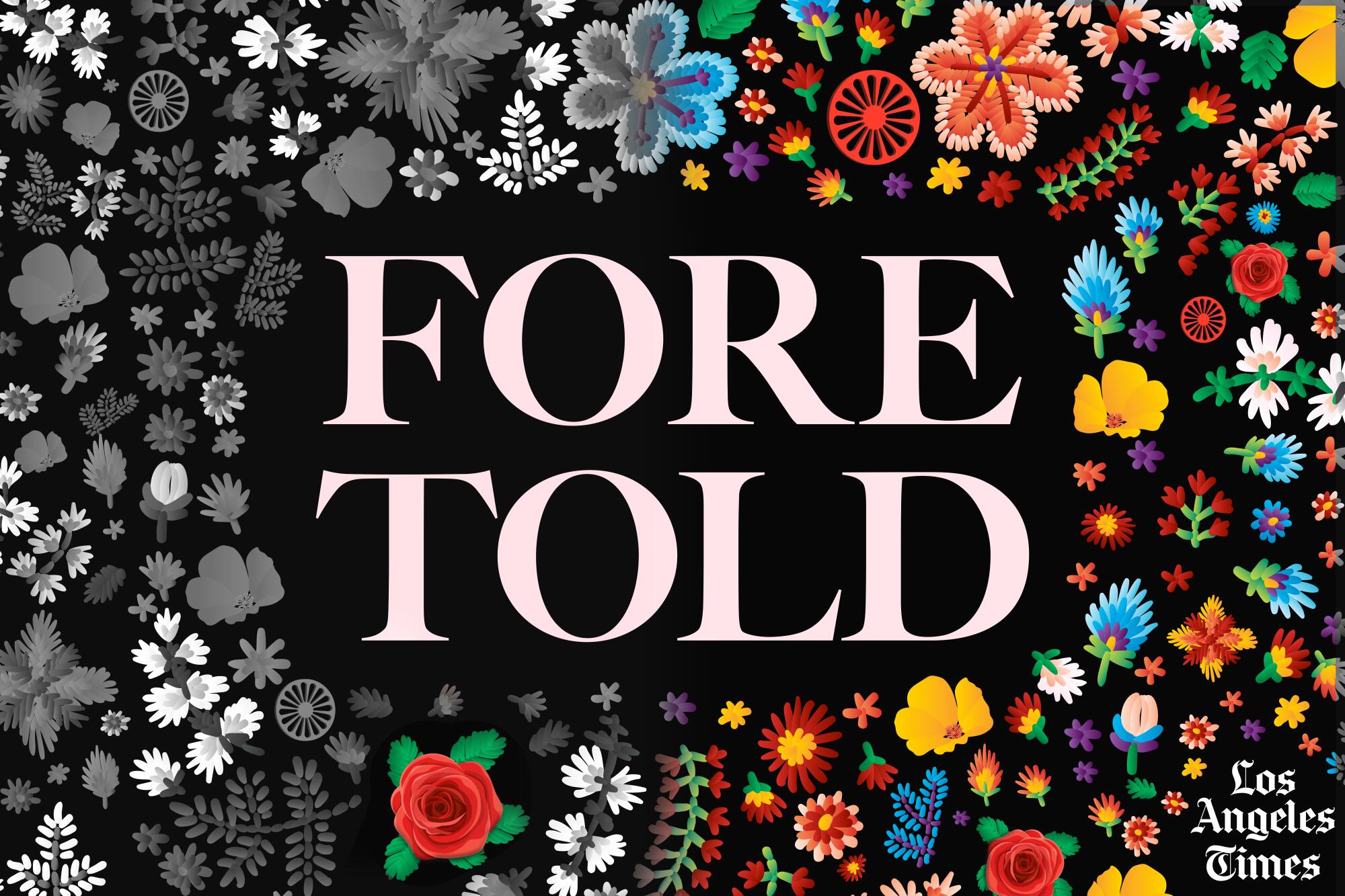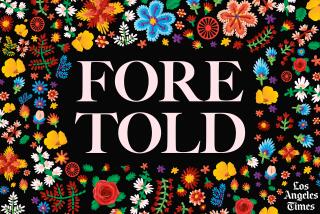
- Share via
Follow 'Foretold' wherever you get your podcasts:
Episode 8: “The Fallout.” Faced with the consequences of her decisions, Paulina grows estranged from her family — but meets Gina, a cousin who left the community decades before. And Paulina turns to her ultimate battle: the fight for her children in court.
Read the episode transcript.
See all episodes and extras.

The biblical King Solomon is known for his wisdom and discernment granted to him by God. One day, the story goes, two women appeared before him, each claiming to be the mother of the same baby. Unable to determine who the true mother was, Solomon proposed cutting the baby in half and giving each woman an equal portion. The first woman pleaded with Solomon to spare the child’s life even if that meant she’d give up her claim to the baby. The second woman readily agreed to Solomon’s proposal of cutting the baby in half. Solomon then declared the first woman to be the true mother because she’d shown that she cared more about the baby’s well-being than her own desire to have custody.
The story serves as a reminder that true wisdom lies not only in knowledge but also in understanding the human heart in making decisions that uphold justice and compassion.
But most custody battles aren’t so easily decided. And nearly nobody would accept an outcome like killing a baby to spite the other party. That’s why this tale is a Bible story, not legal precedent.
The fact of the matter is, custody battles are often very ugly, drawn-out fights. It’s an emotional tug of war. Even in a scenario where the kids’ time is split evenly between parents, administering that split is a logistical nightmare. Lifestyles need to be reviewed and weighed fairly against one another. It’s very difficult to forge an agreement that prevents a buildup of bitterness and resentment.
Human connection is rarely something that can be split neatly. Determining what’s fair in a custody case can be tricky, subjective territory. Ultimately, most judges try to prioritize the well-being of the children. But there’s no standard measure of well-being. So custody agreements are often awkward or uneven splits, jaggedly cut along the fault lines of the relationship that was once the foundation for the children’s lives.
That the justice system — with its supposed “blindness” or stoic objectivity — adjudicates such an emotional and personal issue feels like an odd contradiction. It means that complex, nuanced, interpersonal relationships and cultural dynamics are put up to review and scrutinized.
Paulina and Bobby each wanted majority custody of their two daughters. And in their custody battle, Romani culture — or, at least, the version of Romani culture with which Paulina and Bobby had grown up — was a central issue.
Paulina argued that the culture would harm the girls, that it might get in the way of their education, that it would be bad for the girls to spend too much time in their grandparents’ bustling home.
I am not claiming that everybody in the Romani Gypsy culture doesn’t support schooling or women’s rights or education. But with my experience and with my family, that has been the case.
— Paulina Stevens in “Foretold”
Bobby disagreed, saying in his court documents that he’d keep the girls in school. And, as his lawyer explained in the podcast, Bobby argued that it’s important for the girls to be immersed in their heritage.
The Romani culture are very family-oriented people in that they get together every week on the weekends and celebrate family. And I believe that that’s how you pass on history, culture. And their culture has been passed on, as you may know, for thousands of years.
— Richard Sullivan, Bobby Stevens’ lawyer, in “Foretold”
It’s easy to see why this custody battle is more than just a set of resolutions on how the children will be raised, more than weekend handoff schedules and child support payments.
Listening to how these two sides went at each other over a multi-day custody hearing, it almost seemed to me that it wasn’t just about which parents would get more time with the girls. It was about which culture had a claim over the girls’ future — which culture would raise them better.
— Faith Pinho in “Foretold”
What kind of split would benefit the daughters most? That was up for a judge to decide.
— Jazmín Aguilera
More to Read
About 'Foretold'
Theme music by seven-string guitarist and composer Vadim Kolpakov and composer Alex PGSV. Additional original music by Vadim Kolpakov and Alex PGSV, as well as Alex Higgins. Fact checking by Kasia Broussalian, Ashlea Brown, Lauren Raab, Asal Ehsanipour and Faith E. Pinho. Additional research by Scott Wilson.
Thanks to Shani Hilton, Kevin Merida, Brandon Sides, Dylan Harris, Carrie Shemanski and Kayla Bell. Special thanks to Denise Guerra for her help producing this episode.



